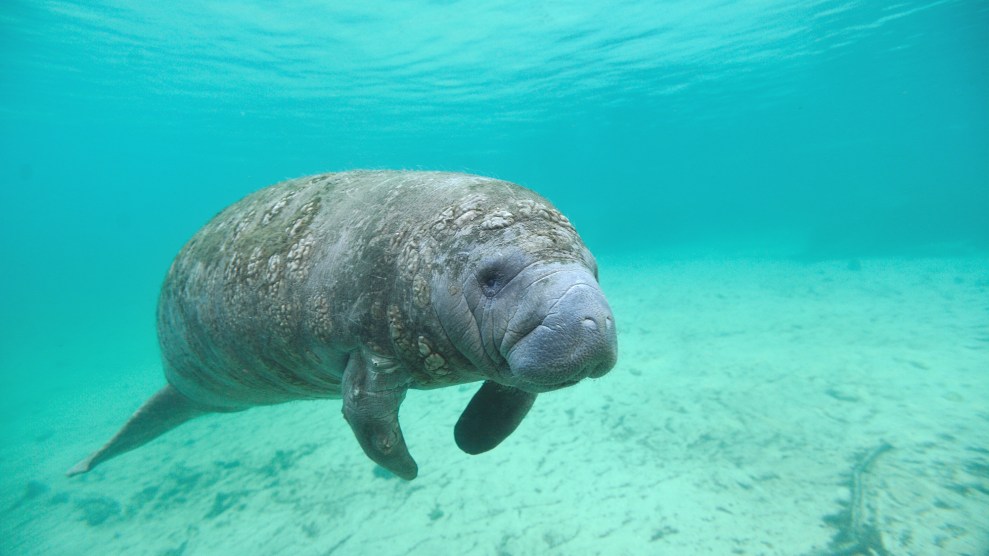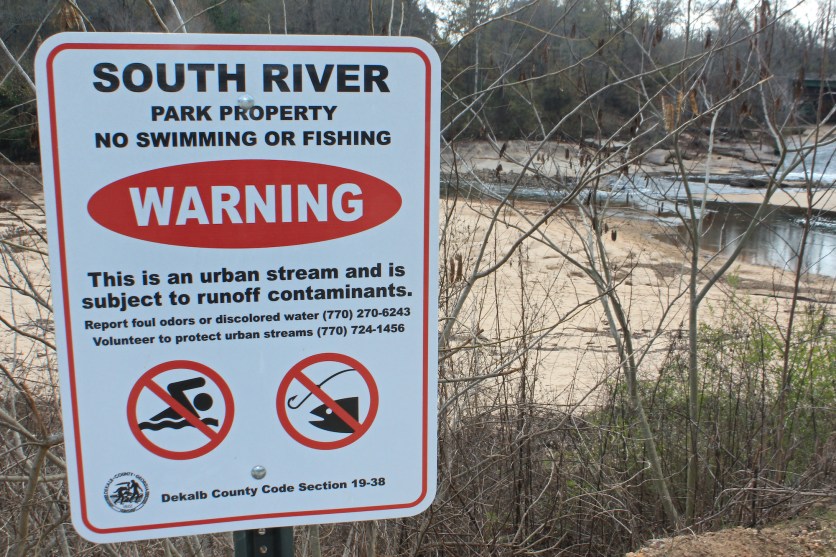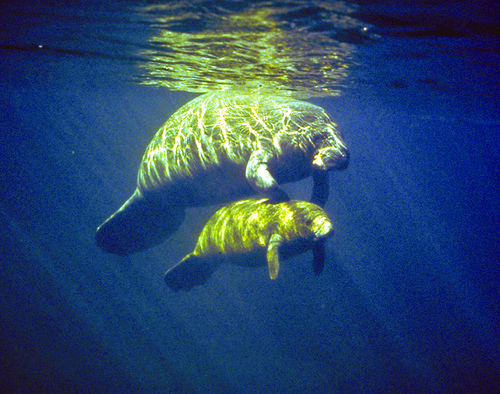
Getty Images
This story was originally published by the Guardian and is reproduced here as part of the Climate Desk collaboration.
Florida wildlife officials will undertake a manatee feeding and rescue operation involving hand-feeding the mammals romaine lettuce, amid unprecedented mortality among the gentle aquatic creatures affectionately known as “sea cows.”
Typically, manatees return to warm water winter feeding grounds, where they feast on plentiful seagrass. But algal blooms from polluted waters have devastated seagrass beds, and thereby wiped out the important food source for the manatees.
Algal blooms and manatee deaths have been especially pronounced along Florida’s Atlantic coast, leading to record-breaking mortality. “Our agencies and Unified Command partners carefully considered all aspects of a short-term feeding trial,” said Shannon Estenoz, assistant secretary for Fish and Wildlife and Parks with the federal Department of Interior, in a release. “It is critical we help manatees in the short term with actions that are compatible with their long-term wellbeing and resilience.”
Normally slow-moving and plump, manatees along Florida’s east coast have shown signs of starvation, and appeared emaciated with protruding ribs. Manatee deaths have overwhelmed local rescue groups and even the ecosystem.
Hundreds of manatee carcasses have had to be towed to remote islands, where they have been left to rot, the Palm Beach Post reported. “They are starving, and I see it in person,” Paul Fafeita, president of the Clean Water Coalition of Indian River county, told local television station CBS12 in Palm Beach. “I’m out there all the time. I’m witnessing it. It’s heart wrenching.”
As a result, Florida and federal government wildlife officials said they would begin an operation to hand-feed manatees romaine lettuce, among other efforts.
A temporary field response station is also expected to be set up in the Indian River Lagoon, on the coast near Orlando, where many deaths have occurred. The Florida state legislature increased an annual stipend for manatee rescue to $8 million.
Initial 2021 manatee mortality data from the state’s conservation department showed more than 1,000 manatees have died. Manatees are an endangered species. The most recent aerial survey of Florida manatee populations found only about 5,700, according to Save the Manatee. In the last five years, an average of 500 manatees have died. By comparison in 2001, just 325 manatees were found dead, with boats among their biggest killers.








